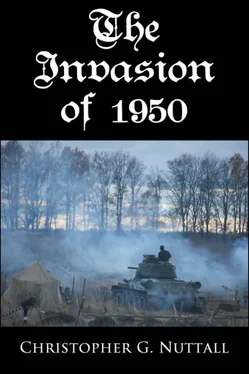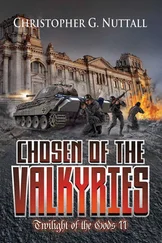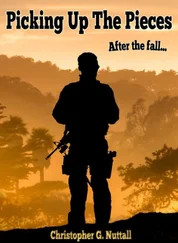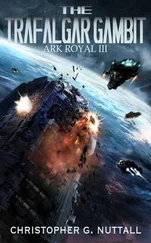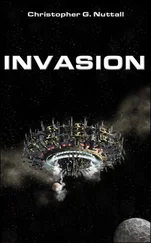He stopped and waited. “Within a month, perhaps less, we will launch an attack against Britain,” Himmler said, calmly. Skorzeny looked delighted. “Your unit has a vital role to play in the assault.”
Skorzeny considered it. “The Tommy is a good soldier, but often unprepared for surprise,” he said, after a moment. “There is no one better at holding a piece of ground, but they don’t always react well when they are hit really hard. The best of their commanding officers match our own, but they don’t often have the same grasp of tactics that we do.” His grin grew wider. “And they have a unit to match ours; this should be fun.”
Himmler stood up and paced over to the map. It didn’t show unit positions; instead, it showed SS locations and personnel throughout Europe. He also knew that there was plenty it didn’t show, such as the fatality rates from Skorzeny’s unit; the parachute-testing program had claimed over a hundred lives since Skorzeny had demanded that a new parachute design be put into production. It also didn’t show the exact details of their target…
He turned back to face Skorzeny. Skorzeny was Hitler’s man, through and through; he didn’t have much time for the mystique that Himmler was trying to create around the SS, his Knights of the Black Cross. Where Himmler was fussy and precise, Skorzeny was impetuous and random. Skorzeny might be an excellent soldier — he was an excellent soldier — but he wouldn’t fit into the Order of the SS, or at least as Himmler envisioned it.
“You launched an attack on General Zhukov’s headquarters,” Himmler said, remembering that incident with some private amusement. The USSR had never really recovered from the loss of Moscow; by the time Beria had succeeded in bringing the Red Army back into a fighting force, their long-term advantages had been reduced sharply and, whatever else he was, Beria was no Stalin. He had no choice but to trust Zhukov to hold together the Red Army and the defence line… and, one day, Skorzeny and a hundred of his men had landed in a Red Army aircraft, slaughtered the General’s defenders, and kidnapped the General himself. It had been the turning point in the 1942 campaign against the remaining body of the Red Army and Stalingrad itself.
Skorzeny smiled lazily. “I remember,” he said. “Do we know where the commanding officer of the British Army is currently based?”
“Your target is a little higher up the scale than that,” Himmler said. “Your orders are to land in London, seize or kill the Prime Minister of Britain and his Cabinet - and then escape.”
Skorzeny shook his head. “London isn’t an isolated airbase in the middle of nowhere,” he said, remembering his mission against Zhukov. “It’s a colossal city. Unless there is a gaping hole in the British defences, we won’t be able to land aircraft and hold the area long enough to snatch the targets and escape. The minute there’s a threat, they’ll bring up reinforcements and trap us.”
Himmler frowned. “What does that mean for your mission?”
“We can’t take them alive,” Skorzeny said, with as much dispassion as if he were ordering dinner. “They will have to be killed, and then we will have to extract ourselves from the scene as quickly as possible.” He paused. “What sort of information do you have on the British defences?”
“Not as much as I would like,” Himmler admitted, wondering if he should let Skorzeny in on the secret. “I have been working to collect information, but there are… limits to what my source can gather and transmit to us without giving away his existence, and the minute the British suspect that they have a leak, they will start tearing their departments apart to find it.”
He watched as Skorzeny went through the information that one of his secretaries had prepared. The big man’s face twitched and twisted as he studied line after line, peering down at the map of London and mentally comparing it to the maps that he had studied, back in 1940. Skorzeny had been one of the finest soldiers in the Leibstandarte SS Adolf Hitler back then, and he would have seen plans of Britain, but the information that Himmler had gathered was updated to 1950.
He looked up finally. “What sort of assets do we have on the ground?”
“A handful of agents, several of whom may be under surveillance,” Himmler said. “They still have Sillitoe in command of their counter-espionage service and he’d a determined man, always pushing the limits of what he can do with his people. We have some links with the British fascists, but they’re definitely being watched and have almost no military capability…”
“That wasn’t what I was thinking about,” Skorzeny said. “They have three barracks in London, four counting the one for the Palace Guards; that gives them, at most, several thousand soldiers who could react to us landing. They’re going to react, which means…”
He broke off. “I have been training people for possible operations against Britain,” he said. “If we had some support from the air, we might be able to hit the barracks first, just enough to confuse them and let us land, launch the attack, and then beat it before the British catch us.”
Himmler nodded. “So it can be done?”
“The cost will be very heavy,” Skorzeny said, flatly. He didn’t flinch, but Himmler did; he rarely visited the camps where the slaves were held, just because he hated the sight of blood. “We can get around five hundred commandos into the area, but the British will still have time to react and counter-attack; I estimate that we will have twenty minutes before they start organising a response. Once we have completed the mission, we can fall back and escape, but it won’t be easy.”
Himmler looked at him. “Could your people go to ground until our soldiers get there?”
“Possibility,” Skorzeny said. “We would need some contacts on the far side and… we’ll need British uniforms. The British would shoot us at once if they caught us like that, but it might just allow us a chance to escape in the confusion. Once that’s completed, we will have a chance to escape, particularly in the wake of an invasion. They’re going to be moving units around like crazy and we’ll just blend in with the crowd.”
Himmler nodded. “I take it that I can trust you to handle the mission and brief a commander?”
“I’m going myself,” Skorzeny said, shortly. Himmler lifted an eyebrow. “I said I wouldn’t send anyone on a mission I refused to do myself, so I have to go, and I have the best training and grasp of the situation. The information will have to be shared around the team — if my aircraft gets shot down, Hans or Johan will have to take over — but I think they can be trusted to keep it to themselves.”
He paused. “What is the source of this information?”
Himmler’s lips wanted to twitch into a smile. “Classified,” he said, flatly. “The information is, however, totally reliable.”
Skorzeny held his gaze. “I need to know how to verify it,” he said. “Who is supplying us with information?”
Himmler answered, reluctantly. “A very strange Englishman,” he said, wishing that he could tell Skorzeny the full story. They’d only stumbled upon the connection by accident and — as far as the SS knew — their target knew nothing of who was reading his reports. He thought that he was still filing reports to Beria and his agents. “His name is Philby, Kim Philby.”
* * *
SS Standartenfuhrer Ludwig Stahl marched into the room, snapped a perfect Hitler salute, and waited for the Reichsführer-SS to give him leave to relax — slightly. Stahl had been surprised by the urgent summons back to the Castle from his previous post as SS Commander in what remained of Norway but he expected that the Reichsführer-SS had a task for him personally. He had committed no major blunders and, indeed, had been commended for his work in Norway, separating out the Aryans from the undesirables that had infested the ancient homeland. His command was charged with hunting down resistance fighters in the mountains, although, as he ruefully acknowledged, it was likely to take years to kill them all.
Читать дальше
